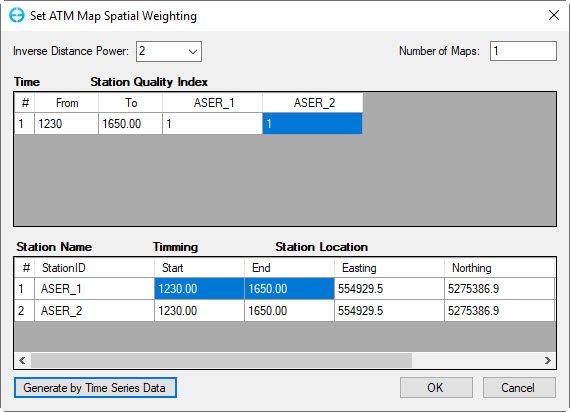The Boundary Condition tab for the Temperature Parameters form allows the use to configure the Atmospheric Data, water Temperature Data and Ice Data options as shown in Boundary Condition Figure 1. These frames are each described in detail below.
Anchor Figure 1 Figure 1
Figure 1. Temperature Parameters: Boundary Conditions.
Atmospheric Data
EEMS includes the atmospheric pressure horizontal gradients in the model domain on the hydrodynamics. This allows EFDC to address pressure variations in large coastal systems.
...
The impact of atmospheric pressure is included in a number of hydrodynamic models including CH3D. The USACE uses this approach when they are simulating coastal systems.
Boundary Condition Figure 1 shows the Atmospheric Data frame in the Temperature Parameters form. Here the user can select the Edit button to open each atmospheric series and edit them as shown in Boundary Condition Figure 2. When there are multiple series the Series Weighting button is enabled and the user can set the weighting for the series as shown in Boundary Condition Figure 3. Details of how to set the series weighting are described under Series Weighting.
Anchor Figure 2 Figure 2
Figure 2. Data series for Atmospheric data.
Anchor Figure 3 Figure 3
Figure 3. Set ATM Map Spatial Weighting form.
Temperature Data
In this form, the user can select the Edit button to open each temperature series and edit them as described in Temperature - External Forcing section.
...
Figure 4. Editing Water Temperature Data.
Ice Data
In this form, the user can select the Edit button to open each ice series and edit them as described in Ice - External Forcing section.


